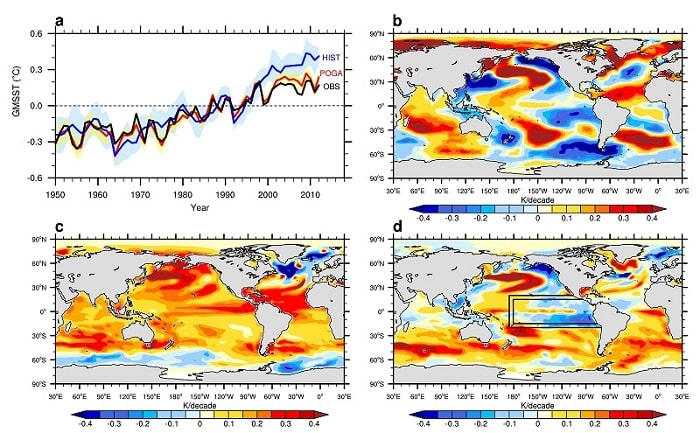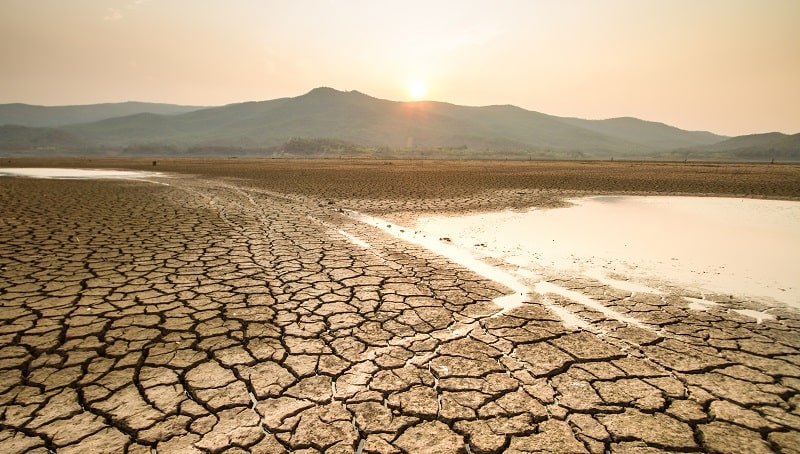Although disproved, the notion of a “climate change hiatus” is one that perpetuates in the general public’s mind. Find out why below.
Climate change is a unique area of science. This is because political and social factors often obscure evidence of global warming. The controversy surrounding the idea of a climate change hiatus is a prime example. Although the majority of scientists agree that climate change is real, there are skeptics. Specifically, some scientists and members of the public still believe in the notion of a climate change hiatus. We look at how the concept of a climate change hiatus began and how this global warming myth has been debunked.
How the Idea of a Climate Change Hiatus Began
The roots of a climate change hiatus span back to a 15-year period between 1998 and 2012. During this time there was a slower increase in average global temperatures than expected. Some bodies, such as the NOAA, reported at the time that rises in global temperatures appeared to have leveled out.
This led climate skeptics to argue that global warming trends had slowed down or even stopped. Thus, the so-called climate change hiatus had arrived. Some critics even used this “hiatus” as evidence that anthropogenic climate change was a hoax. They could use these reports to claim that they had global warming debunked.
Even leading bodies on climate change muddied the waters of the debate. The IPCC, a body of the UN, included a segment related to the hiatus within its fifth assessment report. In their report, they stated that “the rate of warming over the past 15 years (1998-2012) is smaller than the trend since 1951.”
With such prominent bodies acknowledging a hiatus, it is easy to see how the media reported these developments to the general public. The message that the public received was simple and appealing, and it was the idea that there was evidence to suggest that we may not need to worry about rising global temperatures after all.
Divisions Within the Scientific Community

However, there remained a fierce debate within the scientific community as to whether or not there was a climate change pause. Several studies argued that global warming trends continued to grow during this supposed 15-year hiatus.
David Easterling and Michal Wehner published a report in 2009, which was entitled “Is the climate warming or cooling?” The report concluded that periods of little to no global warming could still be evidence of global warming in the long term. NASA wrote a feature article that summarised the report’s position, which you can read here.
In May 2022 a paper published in Nature stated that the apparent confusion as to whether there was a climate change hiatus arose due to natural variations, inconsistencies in the definition of “hiatus” as well as incomplete modeling. The paper concludes that:
“What we are left with from the apparent hiatus is not inconsistent with the understanding of the human influence on global climate. In fact, it increases the confidence in the dominant role of humans in long-term warming.”
Where Did the Studies Go Wrong?
So if the notion of a climate change hiatus is a myth, the question we should ask is how did so many people get it so wrong? The answer is, naturally, complex. However, we have some idea as to the main causes. These causes appear to be a lack of coherent communication within the scientific community, as well as the fact that the media extensively reported stories about a climate hiatus.
Inaccurate data also had its part to play. When the NOAA revised its datasets (as shown in the first image) to calculate the global surface temperature it found that there was no hiatus of which to speak.
Further, the fact that the hiatus was tracked from 1998 onwards is also problematic. 1998 saw record temperatures due to a strong El Niño. This meant that subsequent years appeared to have lower recorded temperatures. So, in a sense, the data sampled over this 15-year period was destined to produce a skewed result.
The Media Still Has Its Part to Play
Although the idea of a climate change hiatus is no longer as popular in the scientific or media community, there is still some cause for concern. The main issue is that there are still individuals that dispute climate change evidence. This is despite the fact that the five warmest years on record occurred in the 2010s, and that the NOAA put 2022 as the third-hottest year on record.
President Donald Trump Is a Prime Example
Although former US President Barack Obama stated that “Climate change is no longer some far-off problem; it is happening here, it is happening now,” his successor in the office does not appear to share the same sentiment.
President Trump was never a staunch supporter of climate change, even calling it a hoax before winning the presidency. In August 2022, the Trump administration officially communicated to the UN that it intends to leave the Paris agreement. However, the earliest possible withdrawal is November 2022, which coincides with the next presidential election.
Trump appears to have maintained his position on global warming trends. During an interview with Piers Morgan on January 2022 Trump said the following:
“There is a cooling, and there’s a heating. I mean, look, it used to not be climate change, it used to be global warming. That wasn’t working too well because it was getting too cold all over the place.”
Although such comments show that climate change skeptics are still present in the popular media, there is some consolation in the fact that public opinion appears to have swung back in support of the evidence of climate change. Comedian Stephen Colbert used Piers Morgan’s interview with Donald Trump as an opportunity to debunk Trump’s ideas on global warming
It is encouraging to see media outlets question views that support climate change hiatus. However, more media coverage is necessary to ensure that the general public remains educated about climate change developments. Otherwise, individuals such as Trump will continue to publicize the myth of a climate change hiatus.



